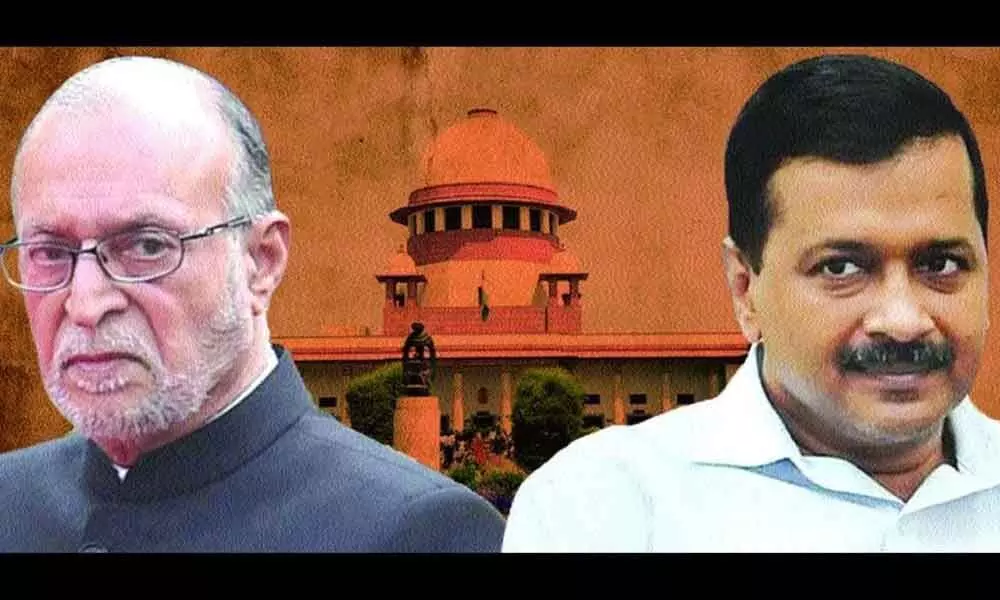Why is Delhi govt stripped of its representative power?

Why is Delhi govt stripped of its representative power?
The chaotic setback the country is facing due to the Corona pandemic is being exploited in different ways. The elected leaders in India are making the best use (or rather misuse) of it by passing the laws and amendments favourable to them.
The Government of National Capital Territory of Delhi (Amendment) Bill, 2021 was introduced and passed in Parliament amid protests during 22nd and 24th March 2021. The Amendment Bill got the President of India's assent on 28th March and the Act came into effect from 27th April 2021.
The rift between the Chief Minister and the Lieutenant Governor of the Union Territory of Delhi is likely to become more blatant since the amendment to give LG powers is passed and it has become an Act. In a way, it can be said that the move again asserts that Delhi is a Union Territory and it will remain so with more powers to the Lieutenant Governor and it will never become a full-fledged State.
This development will not reduce the face-off between the two administrators but rather it will add to it for years to come. As the famous line goes, "There cannot be two swords in one shield." The Chief Minister is the one who enjoys the mandate of the people and, on the other face of the coin, is the Lieutenant Governor who enjoys the mandate of the Union Government.
This is more like imposing the President's rule under Article 356- wherein the Governor assumes all the powers. This will lead to dual administration and the ultimate sufferers will be the people. As it will give rise to law and order problems, there shall be power play between the two kings as to who is right in ruling and what decisions who can take.
A Union Territory is a small administrative unit that is ruled by the Union. The Union Territories are administered and controlled directly by the Government of India. The President of India is the executive head of the Union Territory.
But Delhi, Puducherry and Jammu & Kashmir have an elected legislative assembly and an executive council of ministers with partially State-like functions. Jammu & Kashmir are new to this club but let us take the example of Puducherry which is often in clouds of war between the Chief Minister and the Lieutenant Governor there.
The present amendment states "Government will mean Lieutenant Governor" and now all the files will have to be sent to the L-G for his scrutiny. The GNCTD Bill says: For Delhi, "Government" will mean LG. This is against the Supreme Court's Constitution Bench judgement of 4th July 2018 which said that files will not be sent to L-G and the elected government will take all decisions and send a copy of the decision to L-G.
The federal head of Delhi was already the Lieutenant Governor and more powers to him render the elected government of no use. It means that the Lieutenant Governor will scrutinize and may deter any bill even before its introduction. There cannot be two powerful men ruling in one territory. It will be better if one functions supremely and independently.
When we trace Delhi's chequered history, it is many times that there has been serious fight between the Lieutenant Governor and the Chief Minister. The Lieutenant Governors like Najeeb Jung and Satya Pal Malik had to be replaced after their running feuds with the Chief Minister. There are also instances wherein the administration failed to function effectively and democracy suffered.
In a way, it will be appropriate to take away the electoral power from Delhi and make it fully like any other Union Territory. Or otherwise, treat it like Puducherry and give the whole powers to the Chief Minister. So now, there is no other way to resolve the power tussle if the amendment giving powers to the Lieutenant Governor seems to be the only way out.
Delhi is the national capital territory and there can be no experiments there. The GNCTD Amendment Act has also underplayed the principles of federalism and it is on the verge of destroying the Constitutional institutions.
Thus, the fair solution could be that there has to be clear demarcation of powers and each body should be allowed to function independently and impartially. From now on, there should be a rule that whenever there is a question involving people in a democracy, then there has to be a voice vote and it has to be put to referendum.







